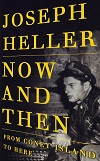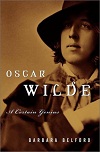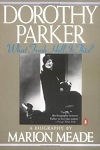Vonnegut and Co., Biographies and Memoirs of the World’s Greatest Satirists
By Jennie Yabroff

Kurt Vonnegut would be ninety-one today, and it’s hard not to wonder what he would make of the current political situation were he alive and still writing. Would his characters wear Google glasses and spy on foreign governments? Would their attempts to buy their own health care frustrate them so much they’d wind up with ulcers and post traumatic stress disorders?
Surely Vonnegut would find our contemporary world ripe for satire. In his most beloved books and stories, such as Slaughterhouse Five and Cat’s Cradle, he blended an unparalleled imagination with a keen eye for the absurdities of modern life. While his satirical take was biting and could be bleak, he was, at heart, a humanist, always sympathetic to the poor fools who found themselves confounded by the conundrums of bureaucracy, technology, and religion. In celebration of his birthday, why not check out biographies of some of the other great satirist who paved the way for Vonnegut’s incisive fiction.
 Now and Then by Joseph Heller
Now and Then by Joseph Heller
In his most famous novel, Catch 22, Heller brilliantly satirizes the circular logic and tautologies one encounters while trying to stay sane in an increasingly crazy world. Heller based this novel about a World War II bombardier desperate to escape the illogic of military life on his own experiences in Italy during the war. In this memoir, Heller writes about his childhood, formative years in the Army, and how he used satire to make sense of the harrowing realities of war.
 Oscar Wilde by Barbara Belford
Oscar Wilde by Barbara Belford
Wilde’s play The Importance of Being Earnest is often considered a light drawing room comedy of errors, with everyone married to the wrong person and secretly in love with someone else. But Wildean scholars suggest this work, as with much of Wilde’s writing, is a dark satire of Victorian mores and the hypocrisies of conventional society. Wilde, who played the role of loving husband and father while also carrying on a passionate affair with a much younger man, was no stranger to the strictures and doubletalk of the day. In this biography, Belford describes how Wilde used satire to criticize the pieties of the times while subtly rebelling against societal norms, often to his own peril.
 Dorothy Parker by Marion Meade
Dorothy Parker by Marion Meade
At a time when women were expected to be virgins on their wedding nights and aspire to little more than domestic tranquility, Dorothy Parker smoked, drank, slept with married men, and, perhaps most transgressively, wrote wickedly funny satirical stories for The New Yorker, lampooning the bird-brained, mush-mouthed women who followed the conventions of the day. In this biography, Meade describes how Parker’s personal life -- wild, colorful, and all too often desperately unhappy -- informed her fiction and satirical sketches, and how her relationships with the other members of the Algonquin round table contributed to her jaded, yet clear-eyed, view of the world.
 Jonathan Swift by Leo Damrosch
Jonathan Swift by Leo Damrosch
One of the earliest satirist was also one of the most radical: in his piece A Modest Proposal, 18th Century Irish writer Jonathan Swift suggests, quite calmly, that the people of Ireland could solve many of the nation’s problems if they sold their children to be eaten, writing that “a young healthy child well nursed is at a year old a most delicious nourishing and wholesome food.” In this, and his masterpiece Gulliver’s Travels, Swift uses outrageous metaphor and ridiculous circumstance to comment on and criticize the workings of the government, the church, and contemporary thought. In this biography, Damrosch writes about the life of the writer, and how his subversive satires influenced generations of writers who wanted to expose the injustices of their own times.
